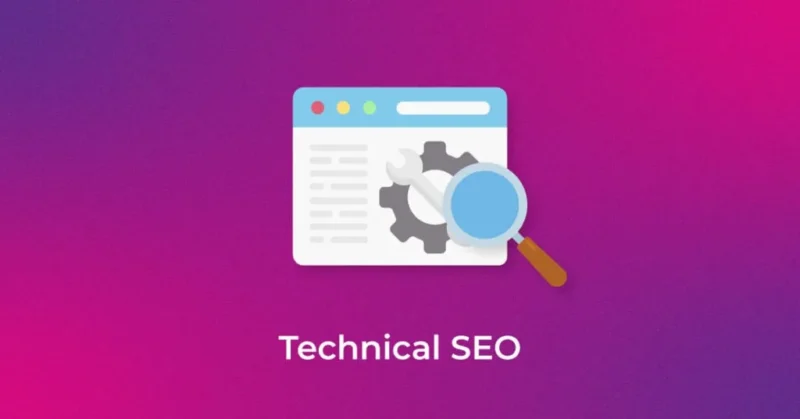Search engine success is a goal of all website owners and marketers, but it can be difficult to achieve. Technical SEO plays an important role in helping your content get discovered online.
By understanding the fundamentals of technical SEO and following best practices for optimization, you can ensure that search engines can access, crawl, index, and rank your web pages. This article will provide an overview of essential technical SEO techniques and how they help improve visibility in organic search results.
From keyword research to image optimization to site structure analysis, there are many components involved in ensuring successful search engine performance for any website.
Understanding Search Engine Crawling & Indexation

Understanding search engine crawling and indexation is an important part of technical SEO. Crawling is the process in which a search engine visits websites, gathers information about each page it finds, and then adds that data to its index.
Indexation is the process of storing all this collected data in one database for easy access when someone performs a query. To ensure successful performance in SERPs, website owners must optimize their sites to be more easily crawled by spiders or bots sent out from main servers.
This includes making sure titles are descriptive enough to accurately reflect the content, meta descriptions make sense and are keyword-rich, URLs are concise yet contain relevant keywords, images have proper file names and ALT tags, internal links connect pages well without leading to dead ends or 404 errors – among many other essential optimization techniques.
Optimizing Site Structure and URLs
Creating an organized and intuitive site structure is essential for both users and search engine crawlers. By constructing a clear and logical hierarchy of pages on your website, you can ensure that no important content gets forgotten in the depths of the web and that each page can be accessed with minimal effort.
An effective URL structure should also include relevant keywords to improve visibility in SERPs, as well as being easy to remember so that visitors don’t have difficulty returning to them later. Additionally, by using HTTPS encryption for all data transfers between server and browser, websites can provide secure connections for their users.
Structuring URLs correctly helps Google understand which pages they should prioritize when indexing sites—essential for SEO success! By following these guidelines you will not only make your website more user-friendly but you’ll also give yourself an edge over competitors who may have neglected their technical SEO strategies.

Improving Page Load Speed and Mobile Performance
Improving page load speed and mobile performance is a key part of creating an engaging website experience. This allows users to access content quickly, no matter what device they are using.
SEO optimization plays a major role in improving page load times: from optimizing images and videos for faster loading to reducing the size of HTML, CSS, and JavaScript documents. Additionally, caching techniques can be used to store webpages on users’ devices which eliminates extra trips between server and browser.
By combining these methods with improved hosting plans that use top-of-the-line hardware and software solutions, businesses can make sure their websites run smoothly across all platforms. Although technical SEO may not always be visible from the user’s perspective, it is essential for ensuring search engine success by providing a strong foundation on which to build an effective online presence.
Conclusion

Technical SEO is the foundation for search engine success. By taking the time to focus on these critical components of SEO, you can maximize your website’s visibility and increase its chances of appearing in search results.
Optimizing titles, meta descriptions, content, URLs, and other elements will ensure that your pages are properly indexed by search engines and easily found by users. With good technical SEO practices in place, your website can achieve optimal visibility and help bring more traffic to your business or organization.
Ultimately, effective use of technical SEO strategies will improve user experience while also driving organic growth through improved rankings in SERPs—allowing you to reach a wider audience with increased efficiency.


